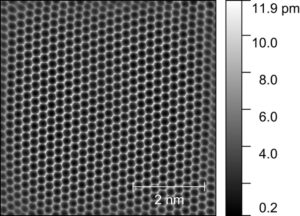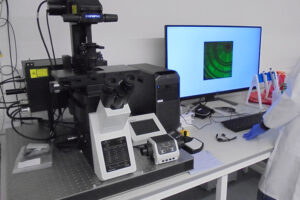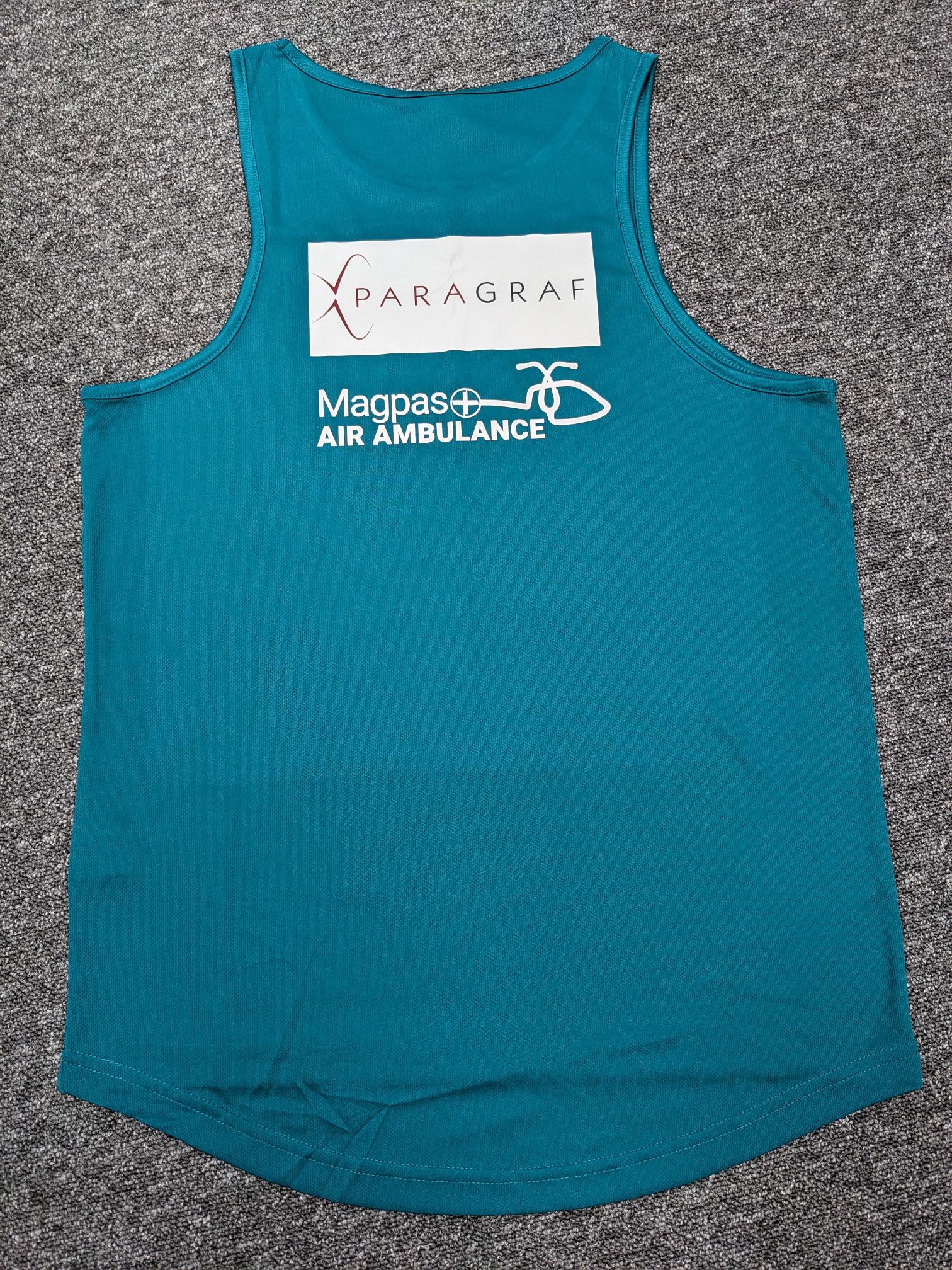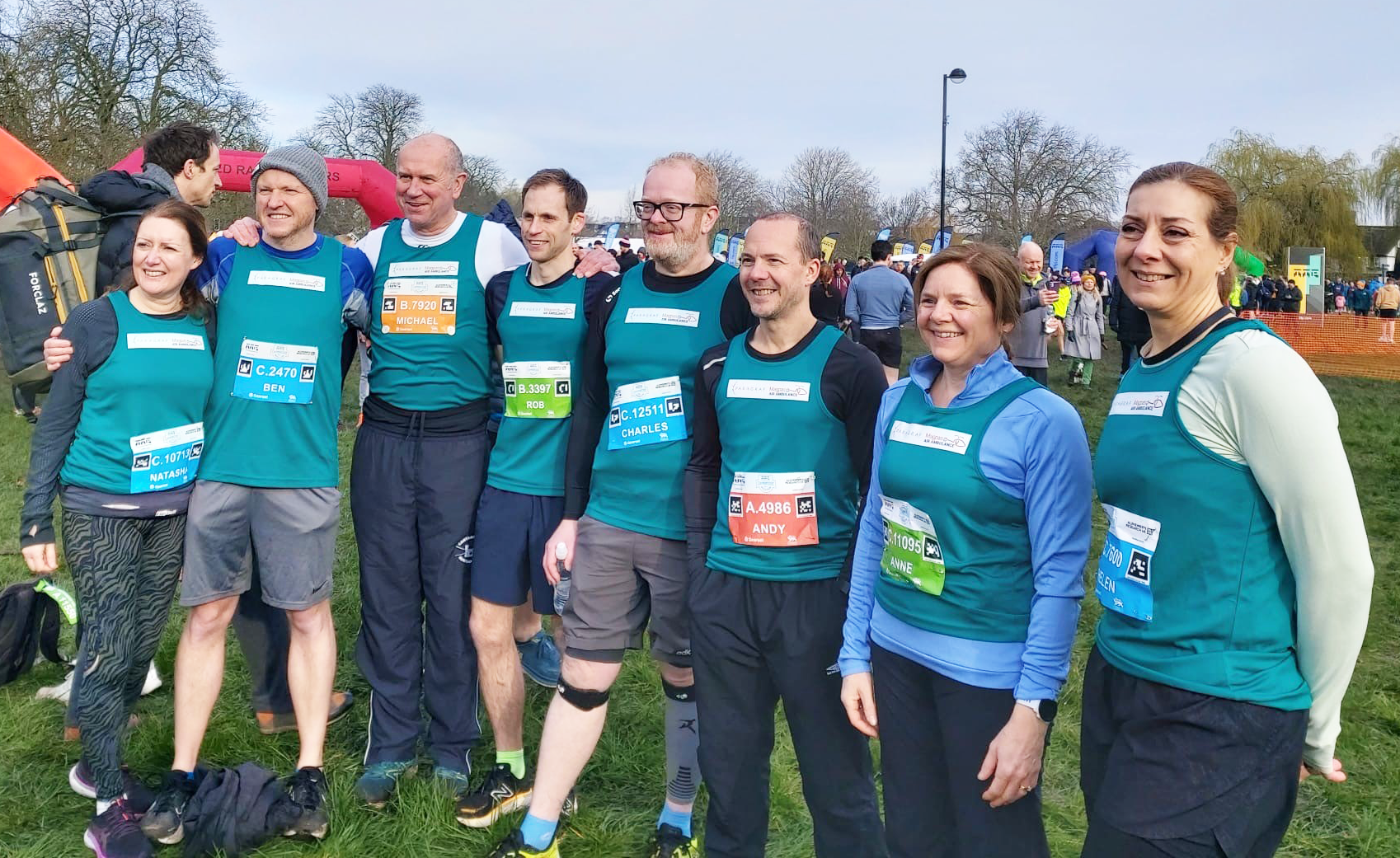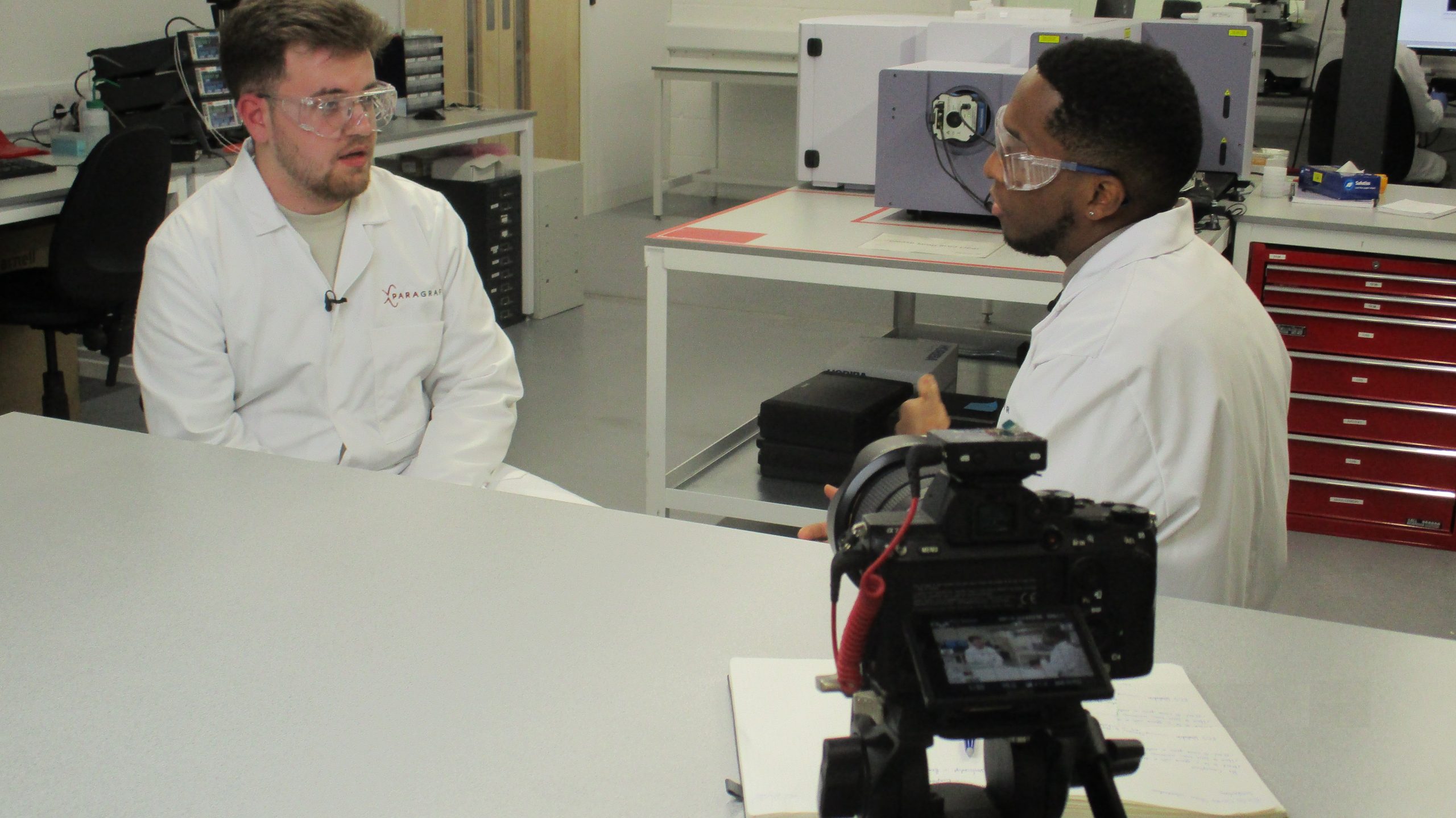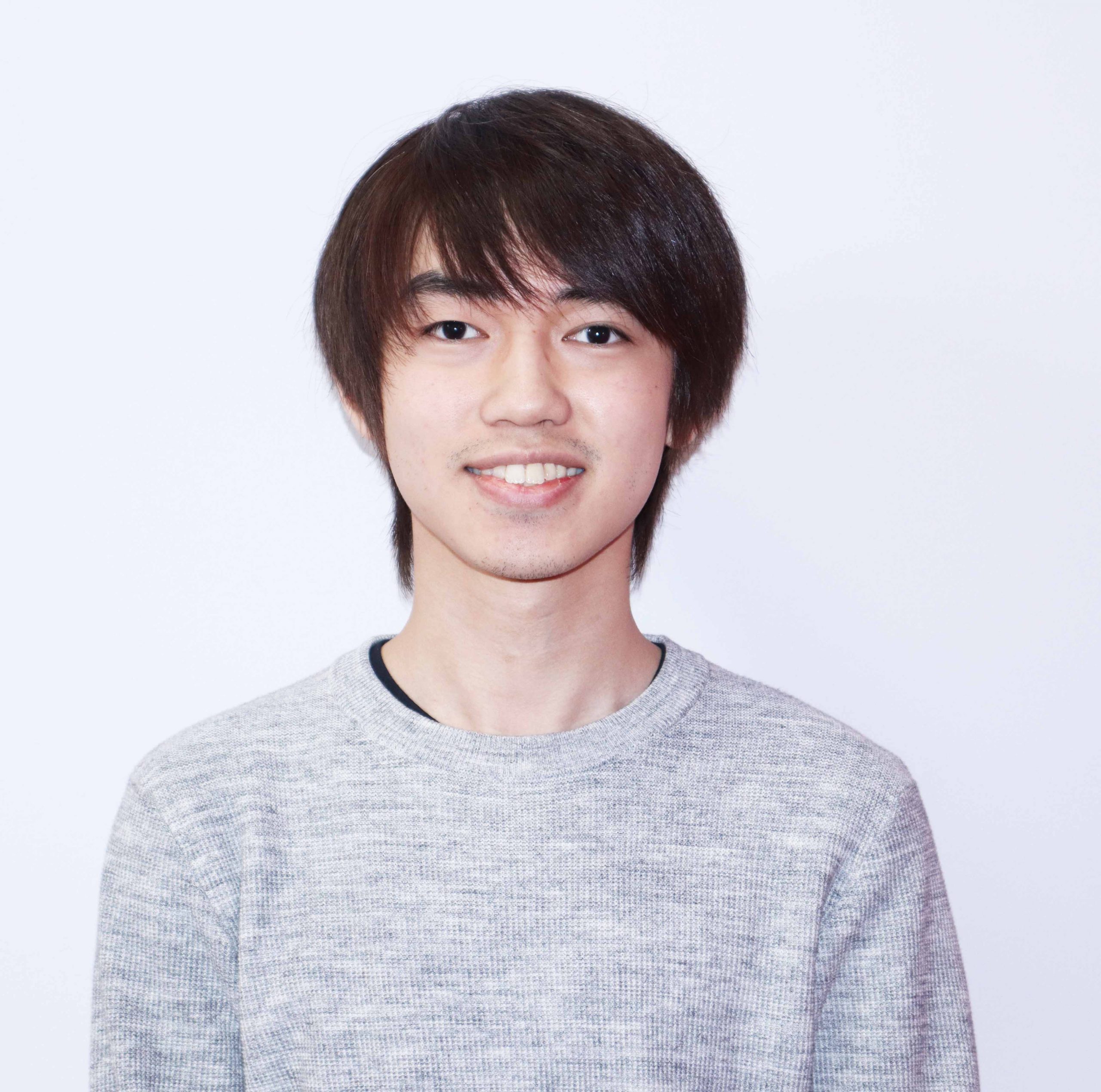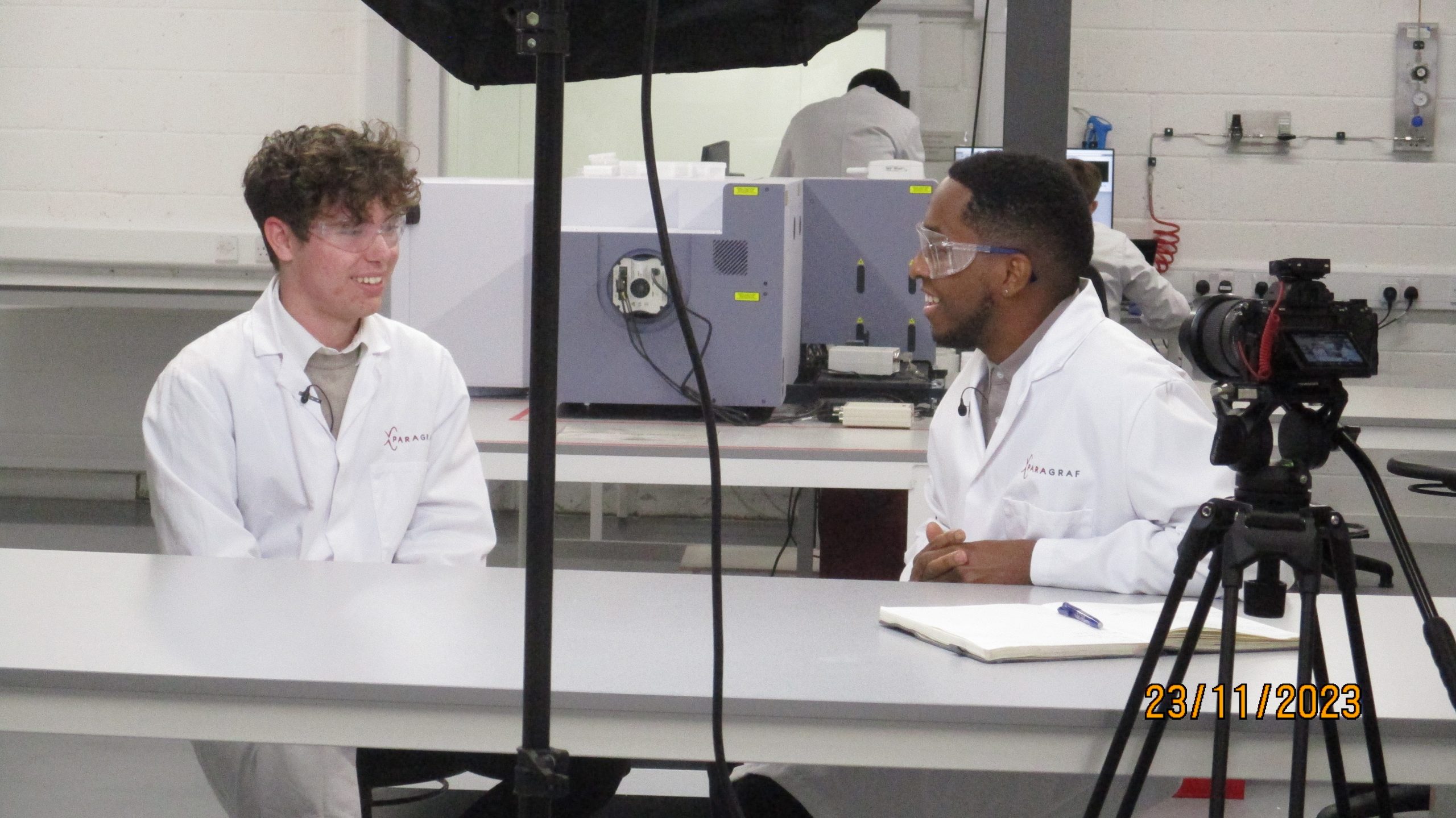Paragraf produces a remarkable Hall sensor that detects magnetic fields. It has acute sensitivity and encoding, yet the full extent of those capabilities hadn’t been investigated until Summer 2023, when I joined Paragraf as a Development Intern to solve this company need and explore the capabilities of the sensor.
Project
My project was to construct a device that tests and demonstrates properties of the company’s graphene Hall sensor (GHS), which measures magnetic fields based on the Hall Effect. The three properties were high-speed rotational encoding, linear encoding and sensitivity to the Earth’s magnetic field.
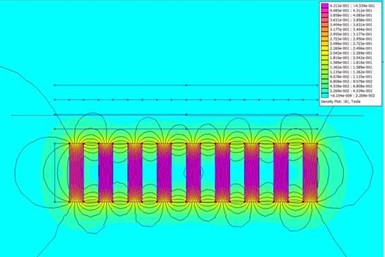
Simulation of the magnetic field array that was measured
I constructed three devices during my internship. The priority of the first device was to make use of materials the company already had stocked, but those proved too unstable and imprecise for the standard of testing that the device had to meet. Subsequently, I sourced higher-quality materials for the second device, which was then used to run magnetic experiments and collect data on one property of the sensor. With the Paragraf Applications Engineering team, this data was then analysed and prepared for a potential customer. Finally, I built a third device capable of testing three key properties of the hall sensor, which served as a capstone to my internship output. Moving forward, someone from this team will continue working on the device. The device is slated to be used both internally for testing and externally for demonstrating (including at tradeshows and private demos for investors and customers). In addition to the physical device, Paragraf also has full access to the 3D CAD file and materials list, so this project is well documented for future reference, replication, and development.
‘There are so many opportunities at Paragraf to explore what we can do with graphene in electronic devices that we don’t have time to do them all, but we welcome interns to join us and help push the boundaries of what we can achieve. We managed to design and build three prototype test systems to achieve a specific customer request that we would not have been able to do without Kano’s help. This also would not have been possible without Kano’s eagerness to work or practical experience that many other undergraduates have yet to develop.’ said Paragraf Development Engineer Joshua Sams. ‘It was great to have Kano join us and help develop the “Sensor Jungle Gym” to stress test our sensors and see what they can achieve in multiple areas. The whole process seemed well set up and she arrived ready and eager to work. She self-organised very fluidly and was able to take on and understand new tasks well. She was also very self-motivated and went the extra mile in acquiring all the information required for both training and tasks. Kano was brilliant to work with and it’s very fulfilling to help support such engaged people early in their STEM career.’
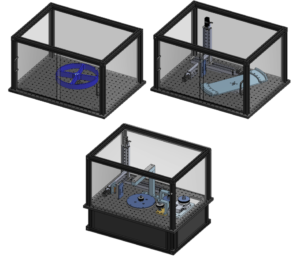
CAD (computer-aided design) models of the three devices that Kano built: device 1 (top-left), device 2 (top-right), device 3 (bottom)
Past experience
Science-wise, I applied my physics knowledge to understanding and working with the graphene Hall sensor. My previous experience working as a Physics Teaching Assistant alongside professors in the 8.02 Electricity and Magnetism class at MIT was directly transferable and actively used during the internship. Engineering-wise, I applied my mechanical engineering knowledge to the construction of this device. As a makerspace mentor for MIT Project Manus, I went into the internship familiar with power tools, heavy machinery and sourcing materials (bearings, motors, etc).
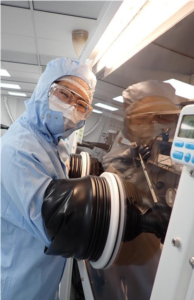
How Kanokwan found this opportunity
Finding my way to Paragraf was a two-step process. First, I was accepted into MIT MISTI UK, my university’s UK division of their global opportunities program. The program gave me a list of companies with which they already had connections, and Paragraf was one of them. Second, I applied to several companies, evaluated my options, and decided that Paragraf was the company that most drew me in.
Moving forward
Being a Development Engineering Intern at Paragraf was a formative, rewarding experience for me. I enjoyed working at the forefront of the graphene industry and seeing how research can translate into products in the world through engineering. I could see myself fitting somewhere in that journey. More than that, novel technology like this will take part in solving the tough problems that the modern world faces. I’m excited to continue this work in some form back at university and beyond.

